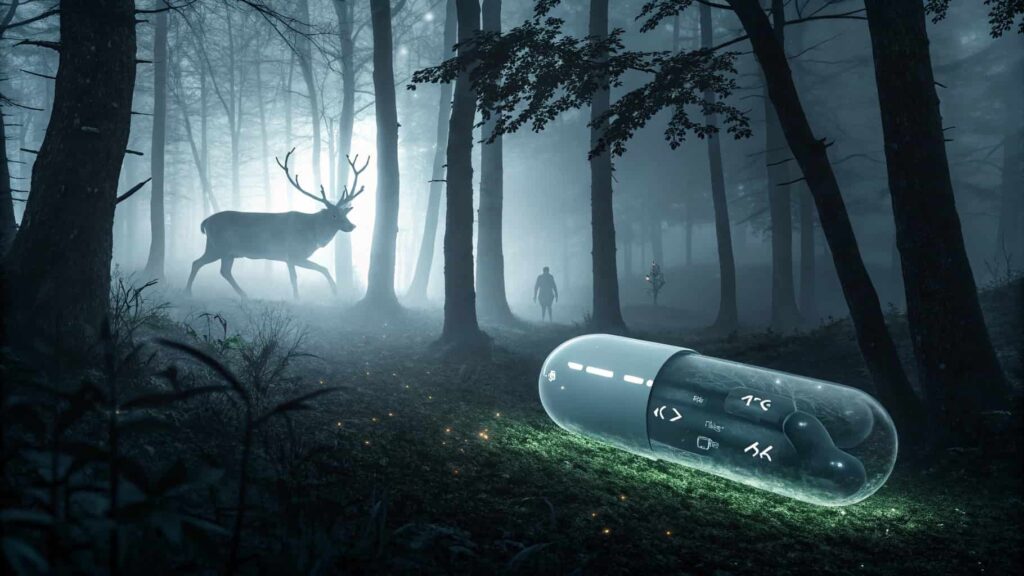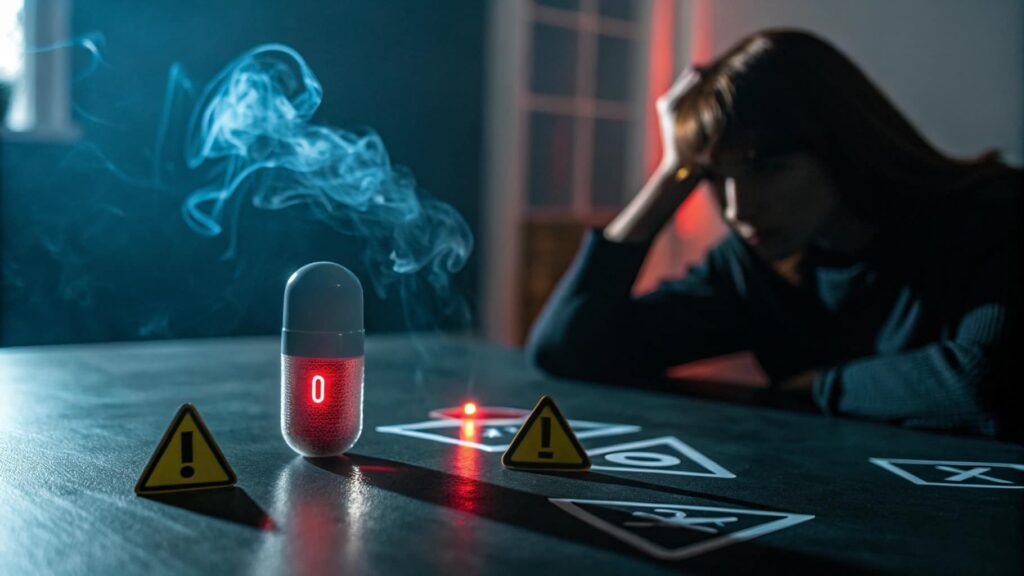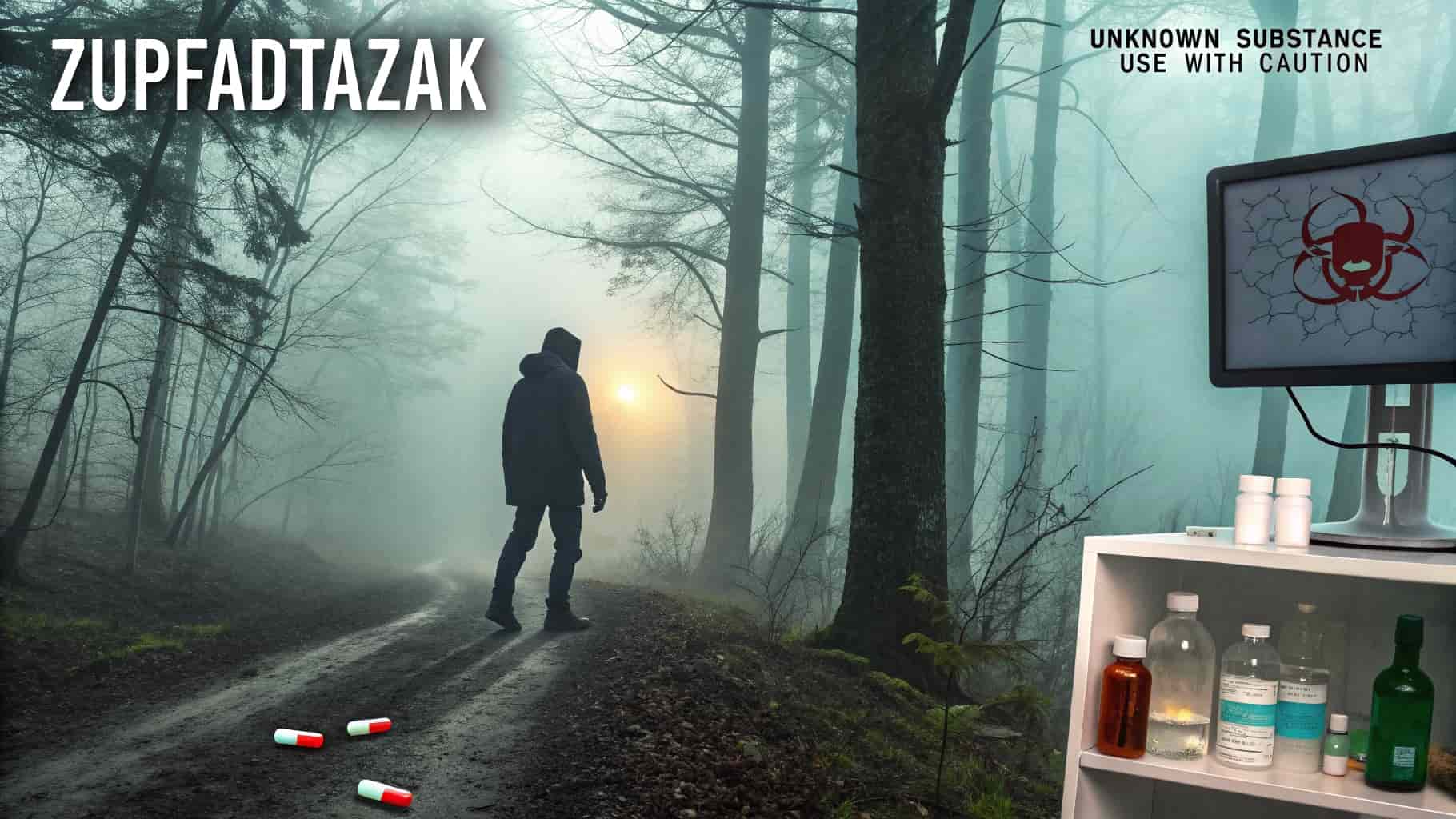In recent years, the term “Zupfadtazak” has gained attention across the internet, sparking curiosity and debate. Though it may seem unfamiliar, it has appeared in various online discussions, memes, and even some health-related talks. However, the true nature of Zupfadtazak remains unclear, leaving many wondering if it could pose any real danger to health, society, or the environment.
Is it a mythical creature, a synthetic substance, or simply a viral meme? This article explores its origins, possible risks, and what you need to know. Keep reading to separate fact from fiction and better understand the potential impact of Zupfadtazak.
What Is Zupfadtazak? – You’re Not Alone!
Zupfadtazak is a mysterious term with no clear definition, used differently across various communities. Some describe it as a mythical creature with glowing eyes and supernatural traits. Others believe it to be a synthetic nootropic drug that may enhance cognition but could cause anxiety or hallucinations.

Additionally, it’s seen by many as an internet meme or AI-generated concept, symbolizing modern digital myths. This ambiguity fuels ongoing debates about its safety and true nature. If you encounter Zupfadtazak, approach it with caution due to its unclear origins and effects.
What Are The Etymology And Origins Of Zupfadtazak?
Zupfadtazak does not originate from any known language family or classical roots. Linguistic experts have found no historical or academic records supporting the term’s existence outside of digital contexts. Many suspect it was fabricated for entertainment or arose from obscure Eastern European folklore where it is associated with forest spirits or guardians.
Some online sleuths suggest that Zupfadtazak might even be an accidental creation of AI language models, symbolizing how artificial intelligence can blur lines between fact and fiction in the digital age.
Is Zupfadtazak A Myth, Molecule, Or Meme?
Mythical Being:
Zupfadtazak is sometimes portrayed as a shape-shifting guardian or predator from Eastern European villages. Folklore suggests it punishes those who disrespect nature, with tales describing strange sightings that provoke fear and disorientation.
Synthetic Compound:
In the nootropic and experimental drug communities, Zupfadtazak is rumored to enhance mental clarity and focus but also linked to adverse effects like anxiety, hallucinations, or dependency. However, these claims remain unverified and lack scientific backing.
Viral Meme:
Most likely, Zupfadtazak is a viral meme or a product of online storytelling, reflecting society’s fascination with mysterious and absurd phenomena.
Each interpretation offers a different lens for understanding whether Zupfadtazak is dangerous—symbolic, physical, or informational risk.
What Are The Cultural And Folkloric Perspectives On Zupfadtazak?
Zupfadtazak’s folkloric roots—though unconfirmed—frame it as a nature spirit turned predator, representing societal anxieties about the unknown wilderness and human behavior. This evolution from protector to feared entity illustrates how myths adapt to cultural fears.
Today, Zupfadtazak appears in indie horror games, short films, and online folklore anthologies, reinforcing its status as a modern myth. While no direct harm stems from these stories, the psychological impact on sensitive individuals could be considered a form of danger.
Scientific Investigation: What Do We Know?
- No scientific evidence confirms Zupfadtazak as a real compound or organism.
- There are no toxicology or pharmacological studies documenting its makeup or effects.
- Claims that it mimics stimulants or hallucinogens are purely speculative.
- Without clinical research or lab confirmation, it cannot be classified as physically dangerous.
- Its existence remains unverified by the scientific community.
- All information about Zupfadtazak is based on theory or folklore.
- Caution is advised due to the lack of reliable scientific data.
Health Claims And Controversies: You Must Know!
Zupfadtazak is rumored online to boost cognition and mood, but these claims lack scientific proof. Some users report side effects like nausea, insomnia, and anxiety. Because it is unregulated, there is no verified safe dosage or safety data. Experimenting with unknown substances like Zupfadtazak can be risky and potentially harmful.

Possible dangers include allergic reactions, psychological dependence, and negative interactions with medications. Due to these uncertainties, caution is strongly advised. Always consult a healthcare professional before trying unverified compounds.
What Are The Regulatory Status And Ethical Concerns Around Zupfadtazak?
Zupfadtazak is not approved or regulated by health authorities like the FDA, EMA, or WHO. This lack of regulation means there are no quality controls or safety standards for products claiming to contain it. As a result, any product labeled Zupfadtazak could pose serious health risks.
Marketing such unproven substances as health boosters is unethical and may mislead consumers. Vulnerable individuals are especially at risk from false claims. Always be cautious of unregulated supplements. Consult healthcare professionals before use to stay safe.
Could Zupfadtazak Pose Environmental Or Exposure Risks?
Some believe Zupfadtazak could be a chemical contaminant or synthetic byproduct from polluted environments. Although no scientific proof confirms this, there are reports of symptoms like respiratory irritation and dizziness after exposure to unknown substances. These concerns highlight the risks of unregulated chemicals in everyday life.
Without proper testing, it’s hard to determine the safety of such compounds. Staying informed and cautious about environmental pollutants is important. Always seek medical advice if you experience unexplained symptoms. Monitoring pollution helps protect public health.
What Do Experts Say About Zupfadtazak?
Experts emphasize caution:
- Toxicologists warn: “Unknown substances lacking scientific transparency should be treated as potentially hazardous.”
- Psychologists note: Fear fueled by viral myths can cause real psychosomatic symptoms.
- Cultural scholars view Zupfadtazak as a case study in modern myth-making through social media.
Together, these perspectives highlight the real mental and social effects of Zupfadtazak myths, even if physical danger remains unproven.
How Does Zupfadtazak Compare To Historical Scares?
Zupfadtazak is similar to past scares like BPA or MSG, which were feared until science showed they’re mostly safe. It also resembles viral urban legends like Slenderman, blending fear with little factual evidence. This pattern highlights how misinformation spreads when facts are missing.
Without clear knowledge, rumors can cause unnecessary worry. Scientific research is key to understanding such claims. Staying critical and seeking trusted sources helps avoid panic. Awareness prevents misinformation from taking hold.
How To Stay Safe Regarding Unknown Substances?
- Avoid unverified products: Don’t consume or apply anything labeled Zupfadtazak without clear ingredient lists or regulatory approval.
- Consult professionals: Speak with healthcare providers before trying new supplements.
- Verify claims: Look for peer-reviewed research and third-party certifications.
- Be cautious online: Avoid websites promising miracle cures or vague health benefits.
What Are Safer Alternatives For Cognitive And Mood Enhancement?
If you’re interested in benefits like those claimed for Zupfadtazak, try safer, proven alternatives. Natural adaptogens such as ashwagandha, ginseng, and rhodiola rosea support stress and energy. Mild stimulants like green tea and L-theanine can boost focus gently. Research-backed nootropics include citicoline and bacopa monnieri for cognitive support.

Psychological methods like mindfulness, cognitive behavioral therapy, and regular exercise also enhance mental health. These options are safer and better studied. Always choose evidence-based approaches for brain health.
FAQ’s
What Exactly Is Zupfadtazak?
Zupfadtazak is a mysterious and ambiguous term with no clear definition. It is variously described as a mythical creature, a synthetic nootropic compound, or an internet meme. Its true nature remains unconfirmed and largely based on speculation and digital folklore.
Are There Any Proven Health Benefits Of Zupfadtazak?
Currently, there is no scientific evidence supporting any health benefits of Zupfadtazak. Claims about cognitive enhancement or mood improvement are anecdotal and unverified. Using unregulated substances like this can be risky and is not recommended.
Is Zupfadtazak Regulated By Health Authorities?
No, Zupfadtazak is not approved or regulated by any major health organizations such as the FDA, EMA, or WHO. This lack of regulation means no safety testing or quality control exists, which raises concerns about products claiming to contain it.
Could Zupfadtazak Be Harmful To The Environment Or Public Health?
Some speculate that Zupfadtazak might be a chemical contaminant from polluted environments, but no scientific evidence confirms this. Reports of symptoms like respiratory irritation raise public health concerns, highlighting the risks posed by unknown substances. This underscores the importance of proper testing and regulatory oversight to protect community health.
How Can I Safely Support My Cognitive Health Instead Of Trying Zupfadtazak?
Safer alternatives include natural adaptogens like ashwagandha and ginseng, mild stimulants such as green tea, and research-backed nootropics like bacopa monnieri. Additionally, psychological methods like mindfulness and regular exercise are effective and scientifically supported ways to boost mental health.
Conclusion:
Zupfadtazak remains a mysterious term blending myth, internet culture, and unverified health claims. Without scientific proof or regulation, its safety is unknown and potentially risky. To protect your health, avoid unregulated products and rely on trusted, research-backed alternatives for cognitive support.
Stay informed, skeptical, and consult healthcare professionals before trying unknown substances. Prioritize safety and evidence over myths and speculation.
Also read:

